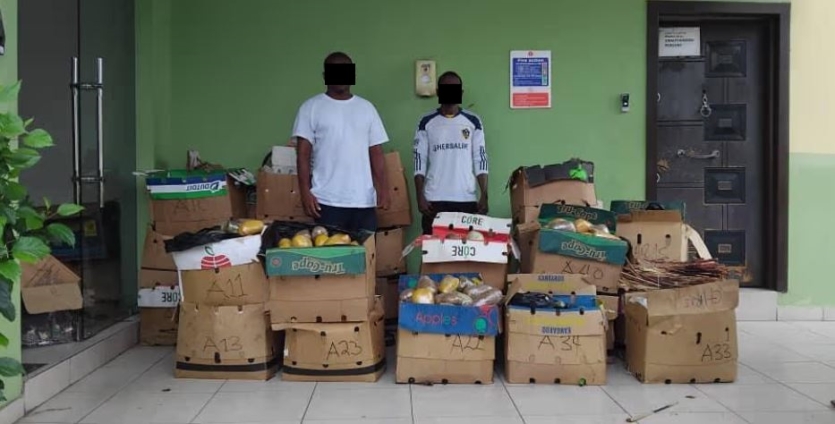Ghanaian authorities have announced the seizure of 738 compressed parcels suspected to be cannabis at the Swissport Terminal of the Kotoka International Airport (KIA) in the capital, Accra, according to the Narcotics Control Commission (NACOC) over the weekend.
The NACOC said the substantial illicit consignment, meticulously hidden within 40 boxes falsely labelled as “assorted food items”, was on its way to the United Kingdom.
The interception follows weeks of intensive intelligence gathering and surveillance by NACOC officials in their continuous efforts to disrupt sophisticated drug operations.
According to NACOC, two individuals have been apprehended in connection with the Swissport seizure and are currently assisting with investigations.
However, authorities have declared two other key suspects, Lincoln Nii OKAIJA (born March 27, 1979) and Kate DAVIDSON, alias “Esi”, as wanted persons, urging the public to provide any information that could lead to their capture.
According to NACOC’s 2022 statistics, the commission seized a record-breaking 59,900 kg of illicit drugs, an increase from 15,458 kg in 2021.
While cocaine seizures often dominate headlines, cannabis consistently features in large quantities due to its local cultivation and demand, as well as its role in international illicit trade routes.
In a related and equally impactful development, NACOC on June 24 conducted a major anti-narcotics operation across Akyem Oda and Akroso, two neighbouring communities in the Eastern Region.
The operation resulted in the arrest of 14 suspects involved in the possession and distribution of illegal drugs.
As part of the stringent crackdown in the Eastern Region, NACOC officials shut down three licensed chemical stores found to be engaging in illicit activities.
These establishments were discovered to be selling unregistered and controlled substances without proper authorisation, a dangerous practice that fuels drug abuse within communities.
The operation yielded large quantities of illegal drugs and suspicious pharmaceutical products, including “red” (likely codeine-based cough syrup, a commonly abused substance in Ghana) and cannabis, among others.
Ghana has been actively collaborating with international partners, including the UK, to combat drug trafficking, recognising its transnational nature.
Such collaborations involve intelligence sharing, joint operations, and capacity building to dismantle criminal networks.
Penalties for drug trafficking in Ghana are severe, with the Narcotic Drugs (Control, Enforcement and Sanctions) Act of 1990 (PNDCL 236) stipulating a minimum of ten years imprisonment for offences related to possession, importation, or exportation of narcotic drugs without lawful authority.
NACOC officials have reaffirmed their unwavering commitment to dismantling drug networks across the country. Enditem
Share Us



